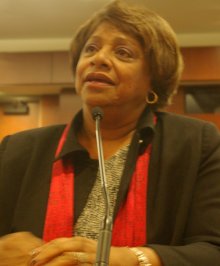
http://www.baltimoresun.com/news/opinion/oped/bs-ed-charters-atf-20150126-story.html.
A January 20, 2015 piece that ran in the Baltimore Sun highlighted new efforts to change Maryland’s charter school law (Bowie, "New Effort Underway to Change Maryland Charter Schools Law"). The article, which relied largely on a report by the Abell Foundation, underlined a pro-charter position but left quite a few stones unturned. Any discussion of change to education policy has to answer whether this is a solution in search of a problem. Maryland is among the best states in academic performance and achievement. The public school system here has been applauded by observers across the nation. Furthermore, when we examine the data we see that on the whole, charters do not perform better than high quality neighborhood public schools. This is even evident in municipalities that have been booming with charter school expansion.
What charter operators are asking for in the state of Maryland attacks the core and fabric of teacher standards and collective bargaining. If, for example, charter operators did not have to abide by Baltimore City Public School System standards, that would strike a mighty blow against the effectiveness of the collective bargaining unit. Many of the charter operators say they have no intention of dismantling or weakening the union but that is effectively what they would be doing. Charters with the ability to directly negotiate with teachers would ultimately result in a “race to the bottom” for teacher wages. We are also finding charters wanting the autonomy to bring on teachers who do not meet the standards of certification that is demanded of teachers now. Why would less qualified teachers be good for Maryland students and families?
We also hear in the piece from our newly inaugurated governor Larry Hogan. Governor Hogan has yet to visit any Baltimore City public schools (where we find a majority of the Maryland charter schools currently exist and expansion would undoubtedly start there). I am confident the Governor would not want to offer or suggest any policy changes before first examining, in person, the students and teachers those changes would most affect. I welcome the Governor to come to Baltimore and visit one of our schools doing important work--namely one of our community schools that are providing wrap-around services to the individual student and the larger community that school serves. Charter schools are an important piece in the puzzle of how to best educate our state’s children. The way charters must operate under current state law are most importantly effective for our young people, but also fair for our teachers. Any change to that will be a solution to a problem that simply doesn’t exist.
Marietta English is president of the Baltimore Teachers Union and American Federation of Teachers-Maryland. She also serves as the president of the National Alliance of Blacks School Educators.
